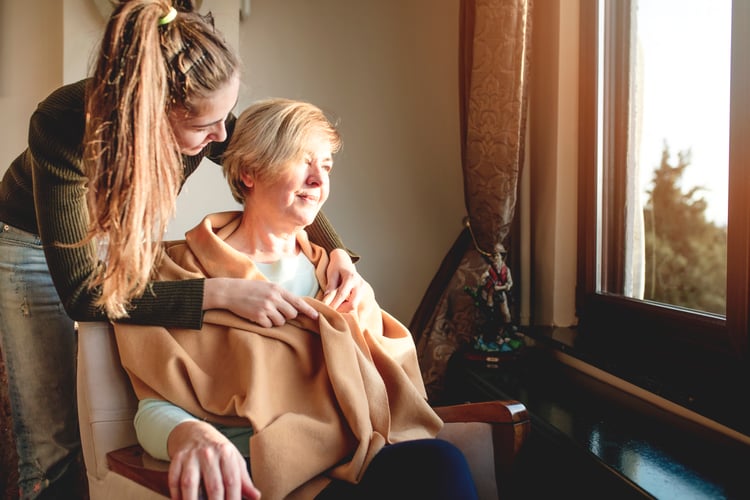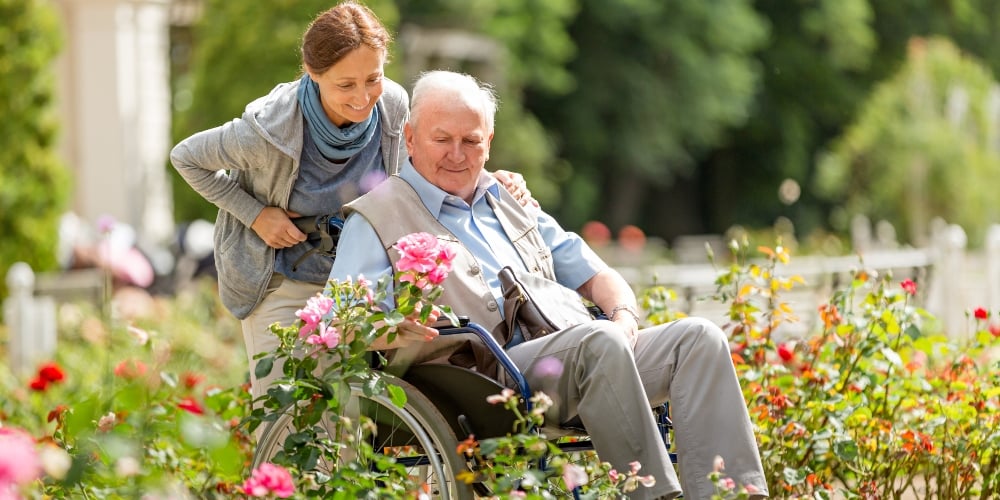
Caregiving for a loved one with dementia can be very rewarding, but also comes with its fair share of challenging moments, especially when it comes to relationships. Your relationship with siblings, your spouse, your children, or even the parent you are caring for can become strained.
With the average family caregiver spending 20 hours or more a week caring for a loved one, it can also be difficult to find time to cope with the many emotions that come from caregiving.
Losing someone to dementia isn’t like losing a loved one suddenly to a heart attack or watching a loved one pass away after being in the hospital for a couple of days. It’s a long, slow process of seeing changes in decision-making abilities, ability to communicate, and emotional changes like anger or agitation.
The stress (and sheer amount of time it takes) to care for a spouse or parent with dementia can leave you feeling isolated and alone. And for those who haven’t journeyed down the road or don’t fully understand the disease, it’s difficult to find others you can confide in, vent to, or seek comfort in on the most difficult of days.
Why join a caregiver support group?
Taking time to process your emotions and identify ways to cope with the stress of caregiving are two of the many benefits of joining a caregiver support group. Support groups provide a safe environment to share your struggles, and challenges, and process the emotions that come with slowly losing someone you love to a disease like Alzheimer’s, Parkinson’s, or Dementia.
For many of us, processing the anger and aggression that comes with the progression of dementia is nearly impossible to fully prepare for. Even on days where there isn’t anger or aggression, watching a loved one struggle to find the right word in a conversation or recognize people they were once close to can be hard to handle.
Support groups provide an opportunity to speak and seek reassurance from those who have experienced first-hand what caregiving for someone with dementia is like. You’re free to share your feelings with those who can relate while learning new ways to cope with the challenging and unexpected changes you will see. You can develop a clearer understanding of what to expect in the future and gain practical advice from other caregivers.
Highgate at Temecula Offers Dementia Caregiver Support Group to Public
If you are looking for an intimate environment and experienced dementia care experts, the support group at Highgate at Temecula is a great start. For busy family caregivers who find it difficult to break away from the duties of caregiving, Care Partners at Highgate can care for a loved one while you attend the support group.
The forum for the support group typically includes a 15-20 minute educational seminar followed by a group discussion among the caregivers. Caregiver Stress was the most recent topic at the Highgate support group as families discussed navigating the holidays while caregiving.
Specializing in a holistic approach to health care, alternatives to using medication to manage challenging behaviors are the next topic of discussion for the support group. Future topics will include caregiver burnout and how to know when it’s time to look for a memory care community.





